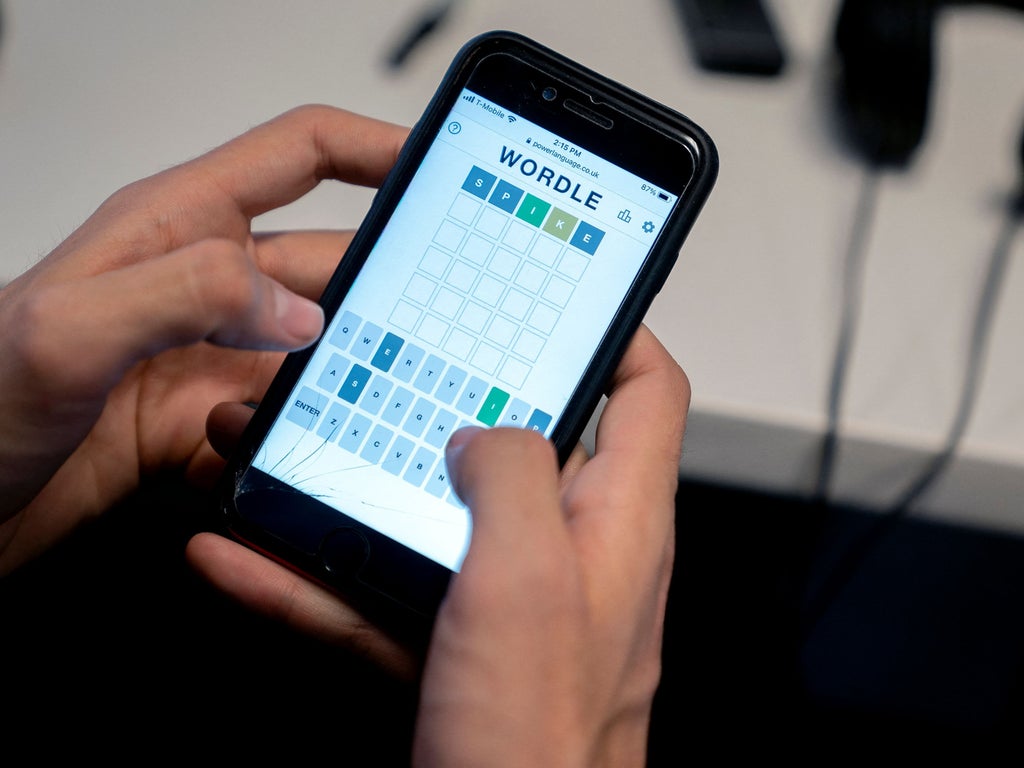
It’s been a wild week for Wordle users. Not only were there two possible answers last Tuesday, players were left scratching their heads after multiple games, saying the word puzzle had become “too hard”.
The game, which was originally created by New York City-based software engineer Josh Wardle, was acquired by The New York Times (NYT) earlier this month for an undisclosed seven-figure sum.
Now, users are saying this move has contributed to the game becoming “elitist”.
“NYT has absolutely ruined Wordle,” behavioural and data scientist Dr. Pragya Agarwal wrote in a now-viral Twitter thread on Sunday.
“It has taken joy out of something that was for everyone, a tiny sense of achievement we could all get from solving it by making it into something we are likely to struggle with. A subtle veneer of pretentiousness has been added that makes me sad.”
When someone asked what the difference was, Agarwal clarified: “It is certainly harder and trickier but that’s what maybe they like us to believe. It seems to operate on diff strategies.”
The way Wordle works is each user gets six attempts at guessing the daily five-letter word. The word is the same for everyone globally.
One user chimed in saying they prefer Quordle, the game where you can play four Wordles at once, or Nerdle, Wordle for numbers.
“The NYT Wordle is just gone, like, annoying,” they added. “How often does one use the word ‘caulk’.”
Caulk was the answer to Wordle 242, which many struggled to guess and also sparked a class divide among the game’s users.
Author Holly Bourne said that Wordle is “over”. “I’m calling it. Wordle is over,” she wrote. “Too many s*** words in a row to try and make the game harder. Fun gone. Lights have gone up and we are all slowly heading home. This is why we can’t have nice things.”
Other users complained that the game had become ‘elitist’, with one person writing: “Wordle went from being fun to being an elitist obscure word system — why can’t we have nice things?”
Another said they are “going to start reading more” so they can be better at the “new elitist NYT Wordle”.
A third said: “It shouldn’t be a test of someone’s vocabulary. The beauty of it was that they were commonly used words (that were still a challenge to work out) so everyone can play. NYT have made it far too academic and elitist.”
Some words players have faced over the past week include “tacit”, “swill” and “dodge”.
The NYT has previously denied changing any of Wordle’s gameplay after the game moved across to the publication.
In an email toThe Guardian last week, NYT communications director Jordan Cohen said: “Nothing has changed about the gameplay.”
Over the weekend, computer scientist David Andersen said that the NYT “did not make Wordle’s words harder”.
“As has already been noted, NYT changed the word list in some very small ways: They removed exactly five words: ‘fibre’, ‘lynch’, ‘agora’, ‘pupal’, ‘slave’, ‘wench’,” he said.
He added that anyone can verify this information for themselves if they go to Wordle and hit “view source”.
“You’ll see towards the end that it includes a file called main._something_.js. If you then load that file, it has the source to the game, which includes the wordlist.”
He concluded that the diagnosis that the NYT “made Wordle harder” is wrong “but your feelings aren’t”.
“The NYT didn’t make it harder, but this is a hard sequence of words in both original wordle and NYT wordle,” Andersen added.
Andersen’s Twitter thread has since been lked over 4,470 times.







